ra 11165 or the telecommuting act
What is telecommuting
Telecommuting is one of the features of modern work, as a result of technological advancement, lifestyle and culture change.
Though it appears to be the same, telecommuting is different from work from home.
The former refers to an employee working from alternative sites, other than the office. While the latter refers to freelancers or solopreneurs who are working at home.
TELECOMMUTING IN A NUTSHELL
Salient Points of RA 11165: An Act Institutionalizing Telecommuting as an Alternative Work Arrangement for Employees in the Private Sector
RA 11165 defines telecommuting as “a work arrangement wherein an employee is allowed to work from an alternative workplace with the use of telecommunication and computer technologies”.
Implementation of RA 11165 is not mandatory, It shall be a voluntary arrangement between the employer and employee. But, it ensures that those telecommuting will be treated the same as their counterparts working on-site.
Under the law, the Department of Labor and Employment (DOLE) is expected to come up with guidelines that will ensure the “fair treatment” provision of the measure such as the:
- Rate of pay, including over time pay and night shift differential, and other similar monetary benefits not lower than those provided in applicable laws, and collective bargaining agreements;
- Right to rest periods, regular holidays, and special non-working days;
- Equivalent workload and performance standards as those of comparable workers at the employer’s premises;
- Access to training and career development opportunities as those of comparable workers at the employer’s premises, and be subject to the same appraisal policies covering these workers;
- Appropriate training on the technical equipment at their disposal, and the characteristics and conditions of telecommuting; and
- Collective rights as the workers at the employer’s premises, and shall not be barred from communicating with workers’ representatives.
RA 11165 further provides for the establishment of a telecommuting pilot program in select industries for a period of not more than three years to enable DOLE to determine the advantages and disadvantages of a telecommuting program in the Philippines.
Personally, I think a law is not needed if roll out is voluntary. There are companies who are doing this even without RA 11165 .
On positive note, those who are telecommuting but are given lesser treatment compare with the office reporting employees will now receive equal treatment from the law.
Likewise, the law hopes to define the pros and cons of such practice for a wider roll up in the future. DOLE is mandated to pilot test this scheme in different industries for 3 years to determine the pros and cons of the practice in Philippine setting.
For your reference, here’s a copy of the telecommuting act.
5 pillars for a great telecommuting experience
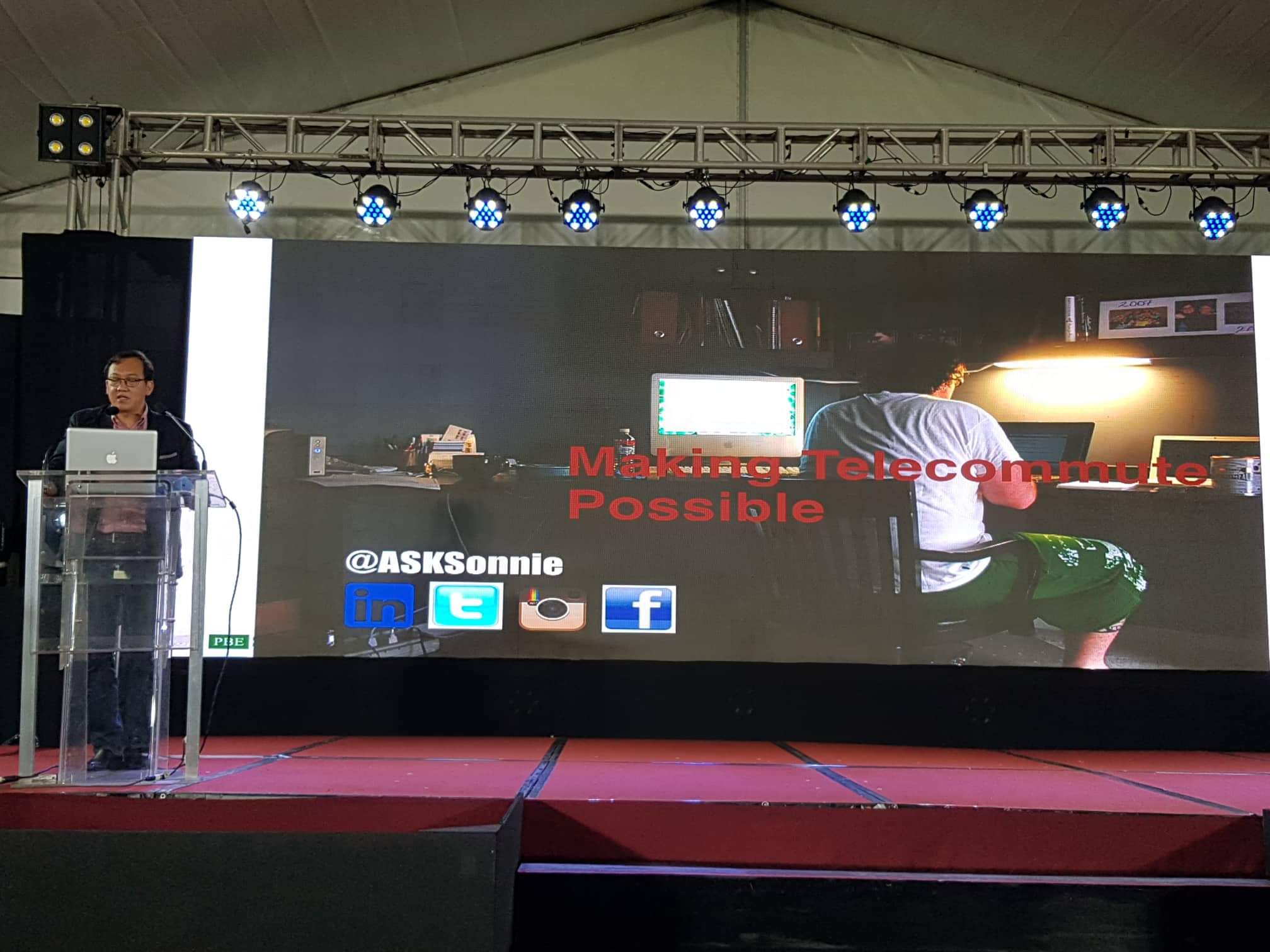
Telecommuting talk by Sonnie Santos at the recent National Climate Change Conference
Implementing the RA 11165 is akin to building a bridge. At one end of the bridge is the interest of the company while the other end is that of the employee. The bridge is telecommuting.
Before building, an engineer has to ensure the pillars are well established and are secure to avoid disaster. Similarly, implementing RA 11165, to be value adding, has to have “well built pillars”.
There are 5 pillars, according to the research of Philippine Business for the Environment, to have a great experience in telecommuting. These are:
Job Suitability
Not all jobs are suitable for telecommuting, thus, the first step is to identify which jobs are applicable to telecommuting
Workspace Standard
Employees whose jobs are eligible to telecommute, should be able to justify that their alternate workspace meets the minimum requirements to get the job done.
Productivity Management System
To reduce trust issues, safeguards should be in place to minimize abuse and loss productivity, and programs are in place for employee growth and development.
Administrative Arrangements
A group should be created to monitor the implementation of the program, and it complies with the labor standards and related laws. Ensuring the interests of the company and its clients are also protected
Security and Risk Management
To ensure compliance to data protection, propriety rights and related laws, relevant departments should come up with guidelines to reduce the risks.
Why implement telecommuting?
Though roll out is not voluntary, let me give good reasons why you should give RA 11165 a try.
RA 11165 can promote work life balance and wellness
Commuting exposes employees to health hazards that can lead to sickness related absences. More sick employees contribute to higher manpower cost due to health card or health insurance premiums. Add to that the OT costs. or loss opportunities, or both, because of sickness related absences or turnover.
Work at home frees the time spent on commuting and they can spend this for themselves, to rest, recreation or just to be with their family
Telecommuting improves productivity
According to a study of NCR’s public transportation sector, the average travel time in Metro Manila is 73 mins.
An accumulated and collective tardiness of employees lead to productivity loss. Productivity loss is foregone income.
In a similar survey conducted by Ford Philippines in 2016, Filipinos were found to be the most dissatisfied commuters in the world. This, because:
- 36% traffic congestion
- 23% public transportation is crowded, uncomfortable and inconvenient.
- 12% more expensive commuting
- 9% difficult to find a parking lot
Add all the effects of long commute and difficulty finding a ride specially during rainy season, and higher commute cost. These leads to employee dissatisfaction, low energy and morale. Employee might consider quitting anytime soon.
The cost of replacing employee, specially the important ones, is no joke
RA 11165 can help employee retention
Since millennials comprise 40% of the present workforce, Telecommuting can attract qualified millennial applicants and retain those who are already employed.
Telecommuting supports the environment
With RA 11165, less vehicles (car owners) will be on the road. This reduces carbon emission, in return helps our environment
Do you practice telecommuting? Care to share your personal or your company’s experience?
Discover more from ASKSonnie.INFO
Subscribe to get the latest posts sent to your email.

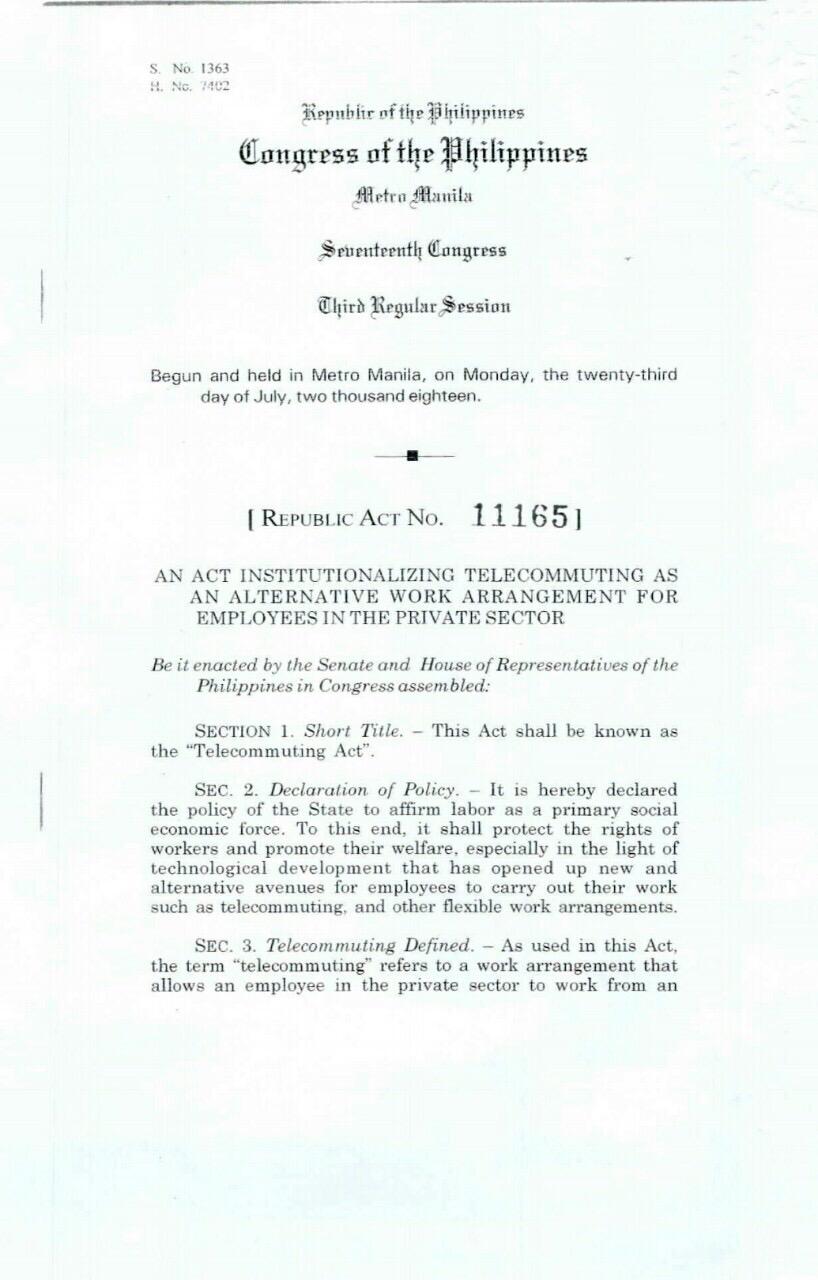
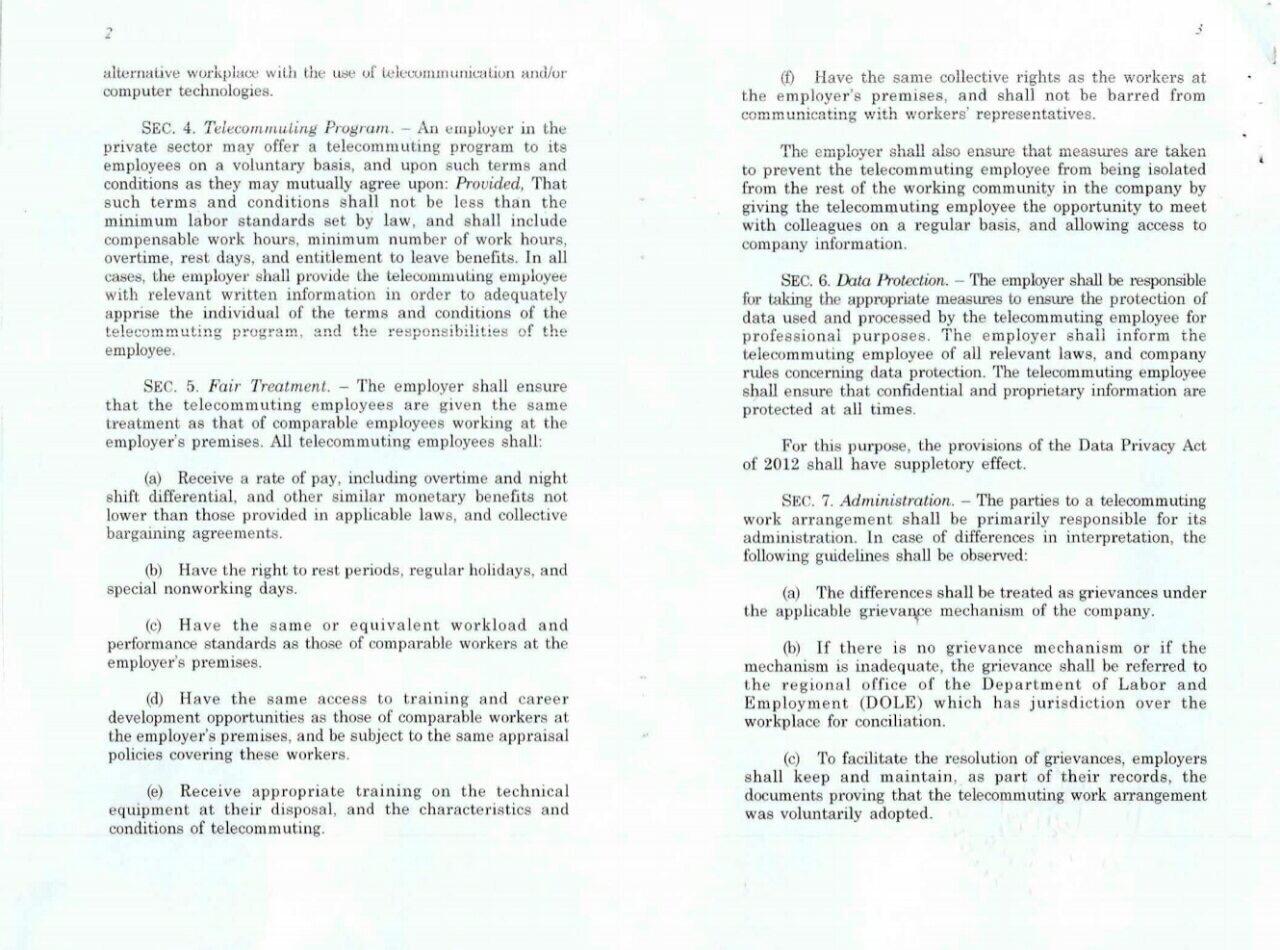
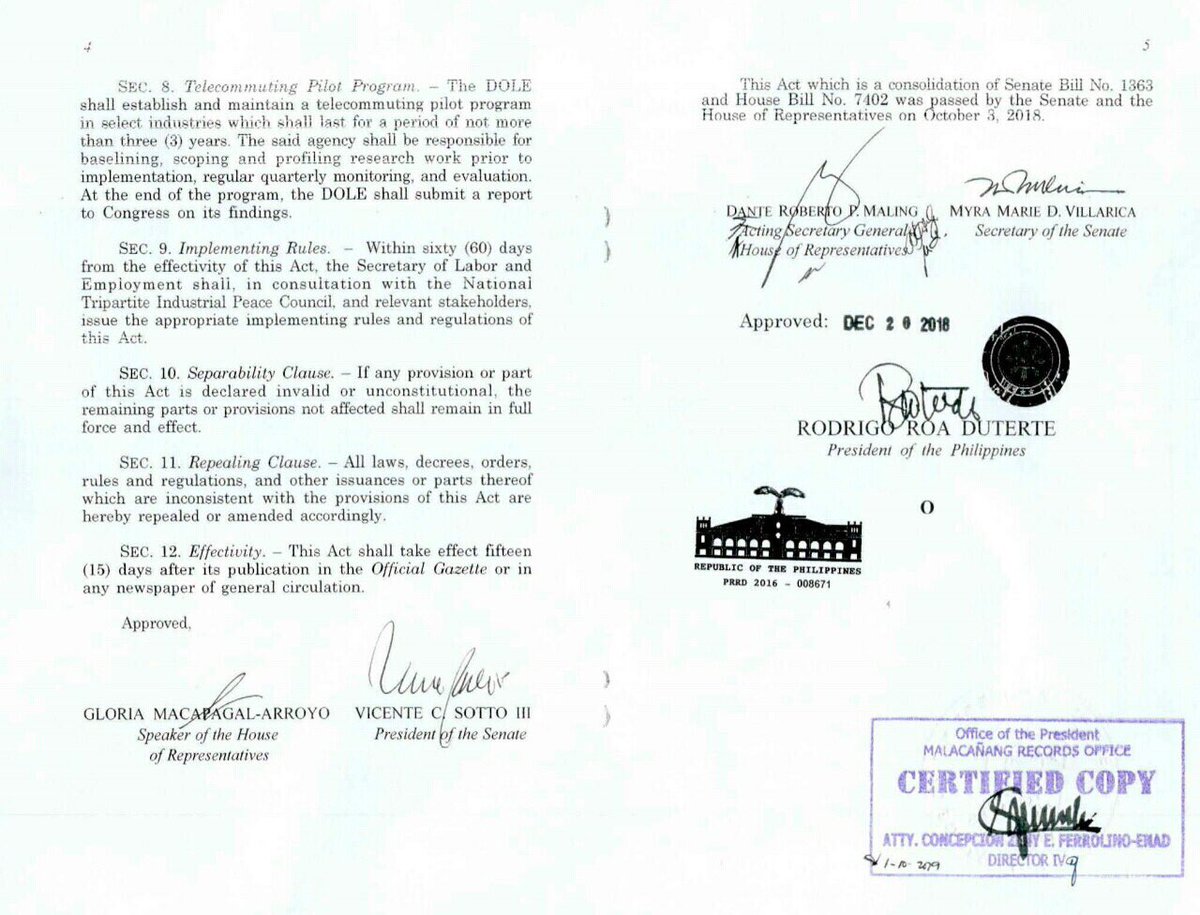
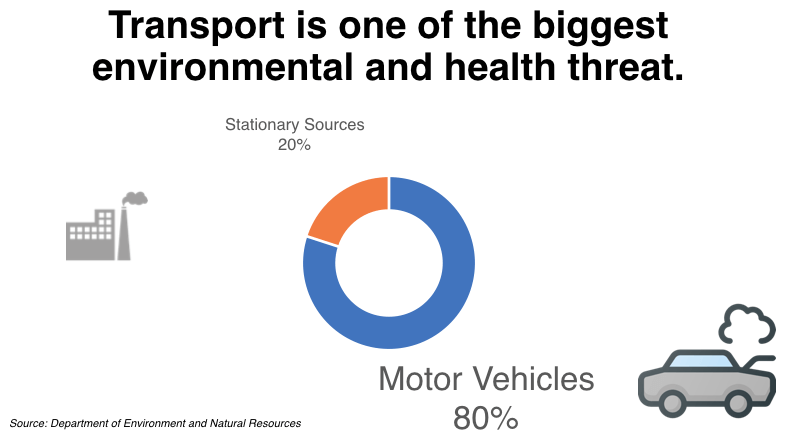

Hi sir,
Thank you for this article, very helpful.
What does Health and Safety means in the telecommuting act? If the company agreed with the employee that he works from home, is it the company’s responsibility to ensure that the telecommuting employee’s home is safe for him to work at? Does the company need to conduct house visit?
Thank you in advance.
Regards,
Jovy
the company should first define the standard requirement for a ‘workspace’ before an employee can apply for WFH. Yes, company must visit to check if the workspace complies with that standard.